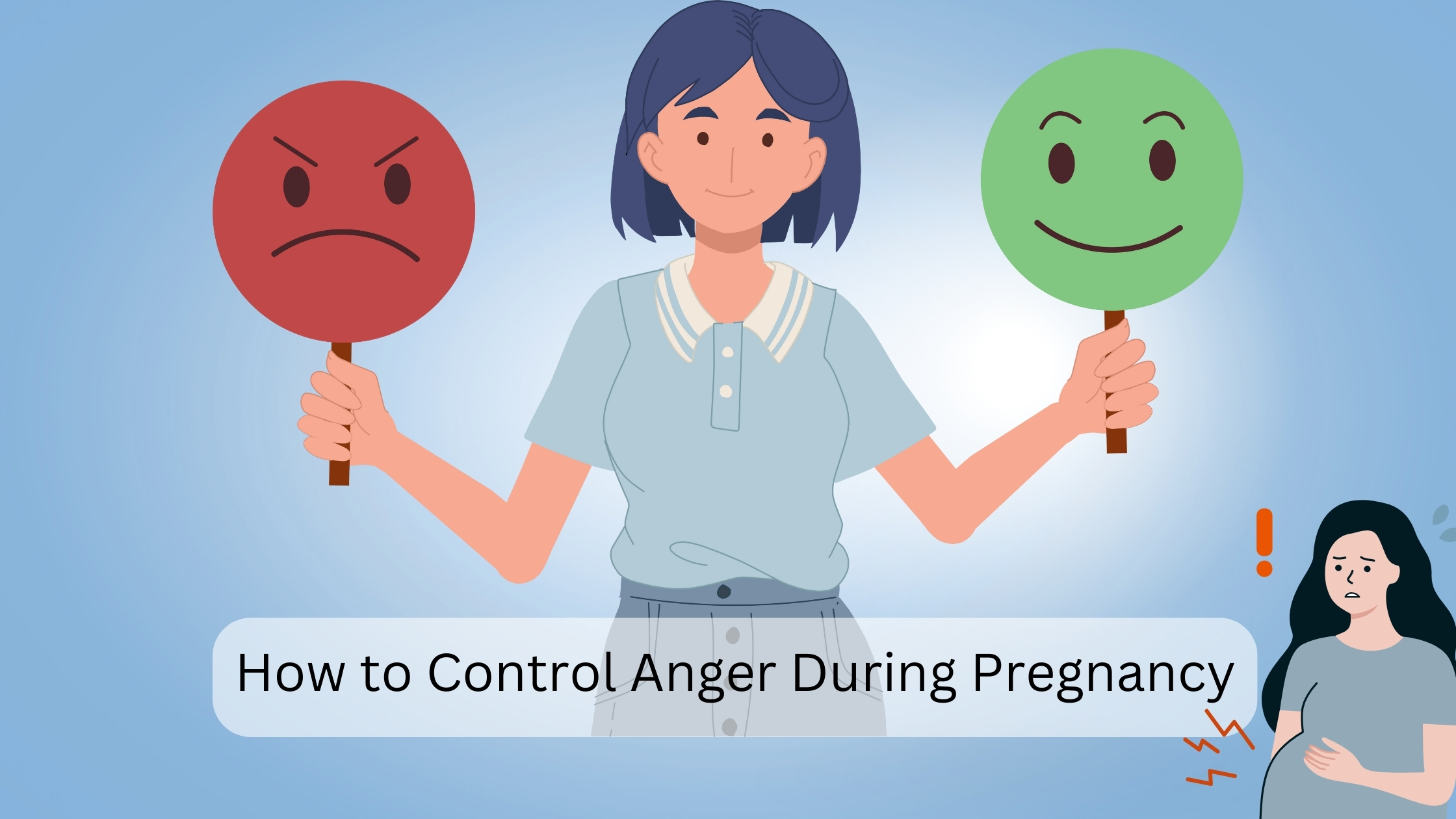Currently Empty: $0.00
How to Control Anger During Pregnancy
 Pregnancy is a special time in a woman’s life filled with anticipation and joy. However, it’s essential to acknowledge that this period can also bring about stress and emotions, particularly anger. In this article, we will explore how much stress is considered too much during pregnancy, the factors that can trigger anger, the reasons to avoid getting angry, and practical tips on how to control anger during this crucial time.
Pregnancy is a special time in a woman’s life filled with anticipation and joy. However, it’s essential to acknowledge that this period can also bring about stress and emotions, particularly anger. In this article, we will explore how much stress is considered too much during pregnancy, the factors that can trigger anger, the reasons to avoid getting angry, and practical tips on how to control anger during this crucial time.
Contents
How Much Stress is Too Much During Pregnancy:
While some stress is normal, having too much can lead to problems. High stress levels are connected to having a baby too early or the baby being smaller than usual. It’s essential to figure out what’s causing your stress and get help when you need it.
During pregnancy, your body goes through many changes, and too much stress can be tough. Stress makes your body release chemicals that might not be good for the baby. That’s why it’s important to recognize when you’re feeling too stressed and do something about it.
Start by figuring out what’s making you stressed, like work or problems with people around you. Talking to friends, family, or a doctor can help you feel better. They can support you and give you advice.
Factors Causing Anger During Pregnancy:
Physical Discomfort:
The physical changes accompanying pregnancy, such as weight gain, back pain, or nausea, can contribute to discomfort. Feeling physically uneasy may lead to frustration or irritability, potentially giving rise to anger.
Emotional Adjustments:
Pregnancy often comes with emotional adjustments as individuals prepare for the responsibilities of parenthood. Anxiety, fear, or uncertainty about the future can manifest as anger.
Stress and Anxiety:
External stressors, such as work pressure, financial concerns, or relationship issues, can add to the emotional strain during pregnancy. Stress and anxiety may escalate into anger when not effectively managed.
Fatigue and Sleep Disturbances:
Pregnancy can bring about fatigue and disruptions in sleep patterns. Lack of adequate rest can contribute to irritability and make it challenging to cope with daily stressors.
Fear of Labor and Delivery:
The anticipation of labor and delivery can evoke anxiety and fear. The unknown aspects of childbirth may trigger a range of emotions, including anger, as a way of coping with the uncertainty.
Why You Should Not Get Angry During Pregnancy:
Getting angry during pregnancy may have consequences for both the mother and the baby. Studies suggest that high levels of stress and anger can negatively impact fetal development.
Elevated stress hormones may affect the baby’s brain development and increase the risk of behavioral issues later in life. Moreover, excessive anger can contribute to high blood pressure and other complications, posing risks to both maternal and fetal well-being.
How to Control Anger During Pregnancy:
Controlling anger during pregnancy is crucial for the well-being of both the mother and the baby. Here are some practical tips to help manage anger:
Deep Breathing:
Deep breathing is a simple yet powerful technique to manage anger during pregnancy. When you start feeling overwhelmed or frustrated, take a moment to focus on your breath. Inhale slowly through your nose, allowing your lungs to fill with air, and then exhale gently through your mouth. Repeat this process several times. Deep breathing helps activate the body’s relaxation response, calming the nervous system and reducing the intensity of anger.
Regular Exercise:
Engaging in regular, gentle exercises during pregnancy is beneficial for both physical and mental well-being during pregnancy. Activities like walking, swimming, or prenatal yoga not only contribute to overall fitness but also help release built-up tension. Exercise stimulates the release of endorphins, which are natural mood enhancers, promoting a sense of well-being. Always consult with your healthcare provider before starting any exercise regimen to ensure it aligns with your specific needs and pregnancy conditions.
Communication:
Sharing your feelings is a crucial aspect of managing anger during pregnancy. Talk to your partner, a trusted friend, or a healthcare professional about your emotions. Expressing yourself can provide a sense of relief and understanding, and those around you may offer valuable support and encouragement. Effective communication fosters a supportive environment, making it easier to navigate the challenges that may contribute to anger.
Time-Outs:
When situations become overwhelming, it’s essential to give yourself the gift of a time-out. Stepping away from the source of anger allows you to collect your thoughts and gain a fresh perspective. Find a quiet space where you can take a few moments to breathe, gather your emotions, and consider alternative approaches to the situation. This brief pause can prevent impulsive reactions and promote a more measured response.
Mindfulness and Meditation:
Mindfulness and meditation are valuable tools for promoting emotional well-being during pregnancy. These practices, involving staying present and acknowledging emotions without judgment, help manage anger. Techniques like guided meditation and mindful breathing, when integrated into daily routines, enhance the ability to stay grounded. These practices foster a sense of inner calm and resilience, crucial for coping with the heightened emotions and external stressors of pregnancy.
Conclusion:
Pregnancy is a time of immense change, both physically and emotionally. Understanding the factors that contribute to stress and anger, along with adopting coping mechanisms, is vital for a healthy pregnancy. By managing emotions effectively, pregnant individuals can create a positive environment for themselves and their growing babies. If stress becomes unmanageable, seeking support from healthcare professionals and loved ones is always a wise decision.














